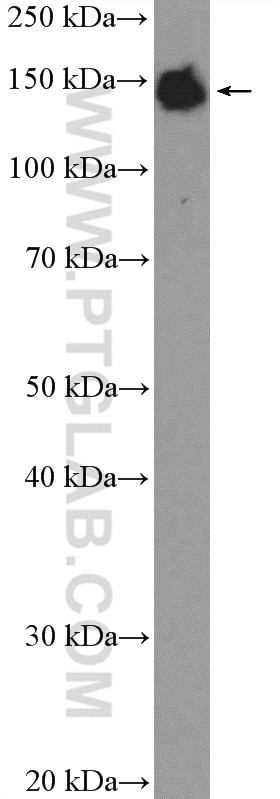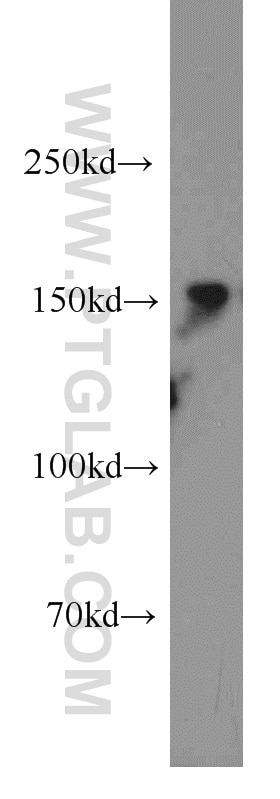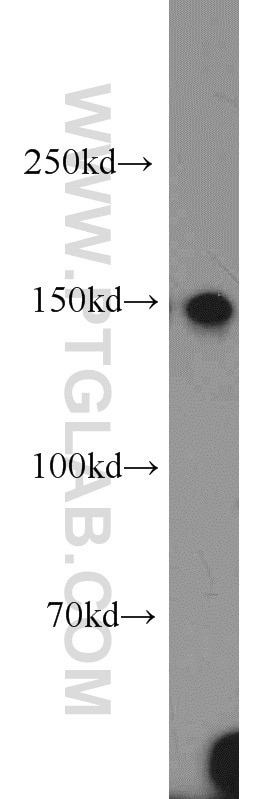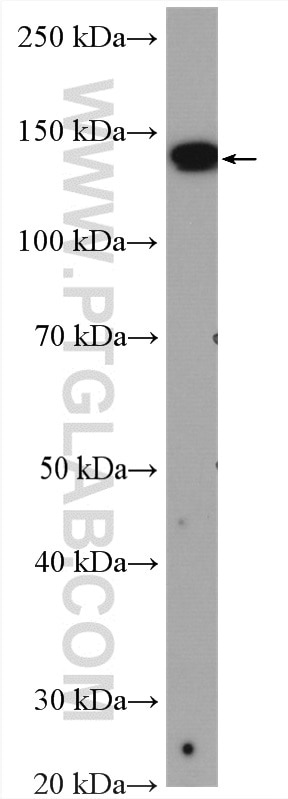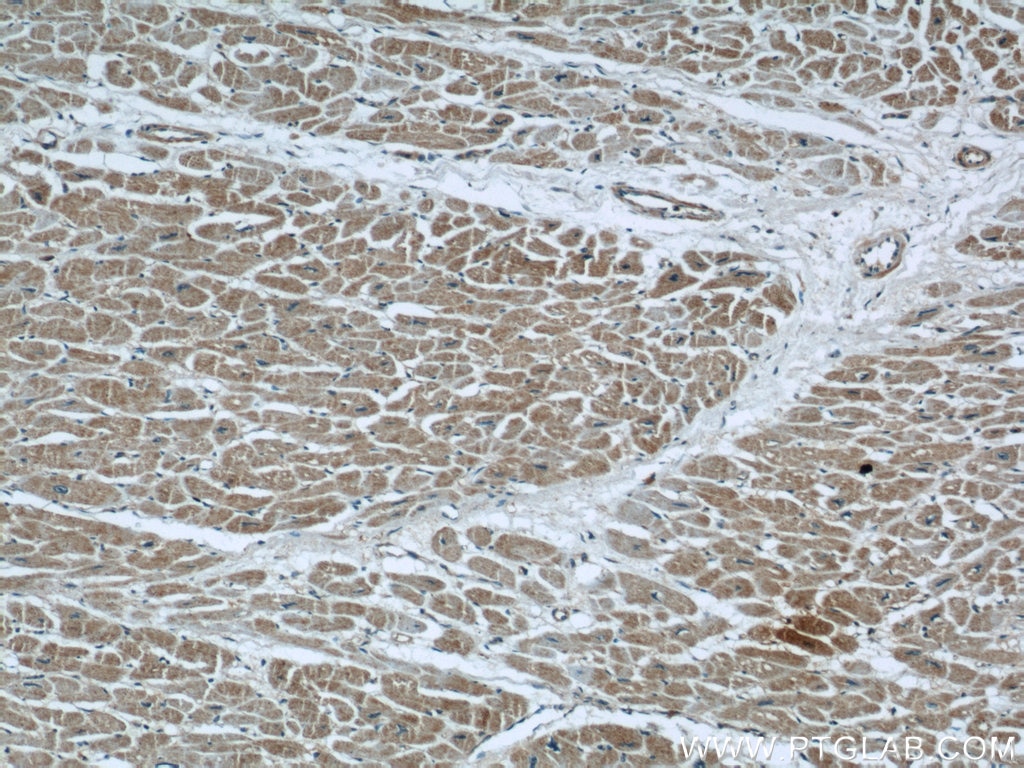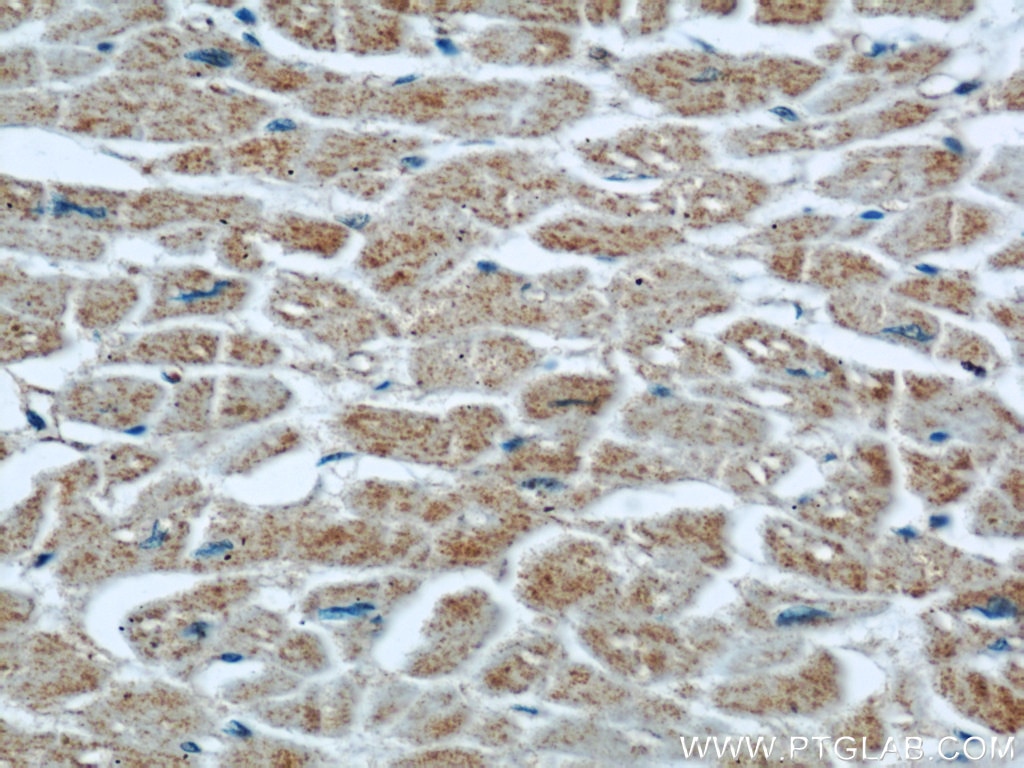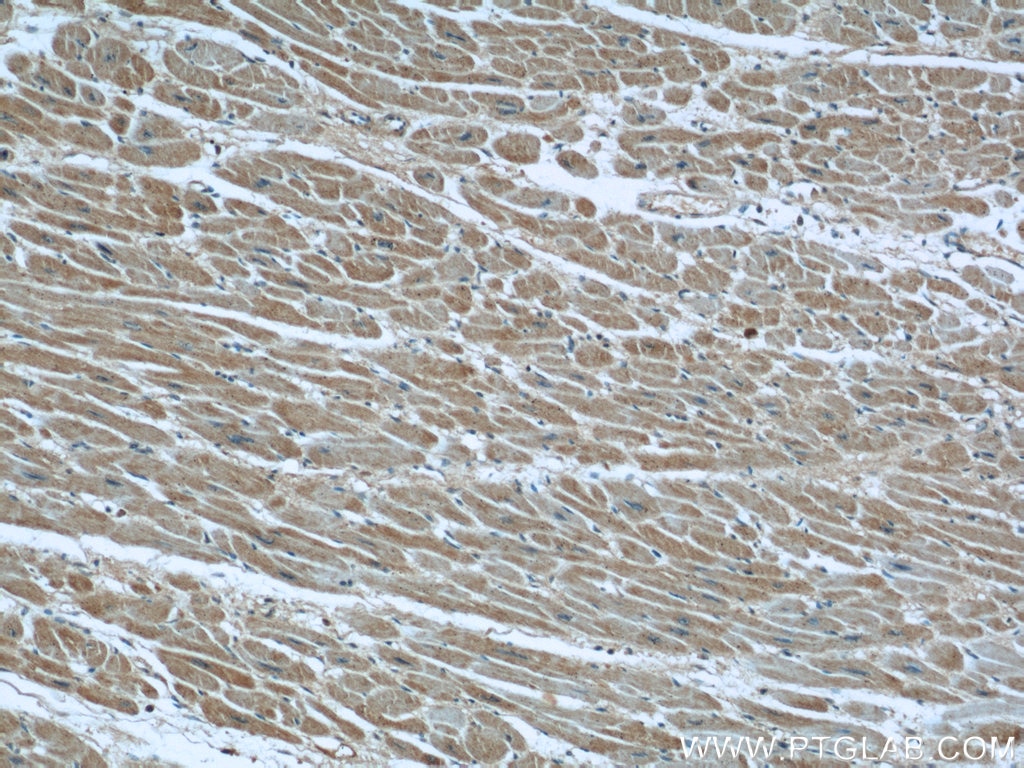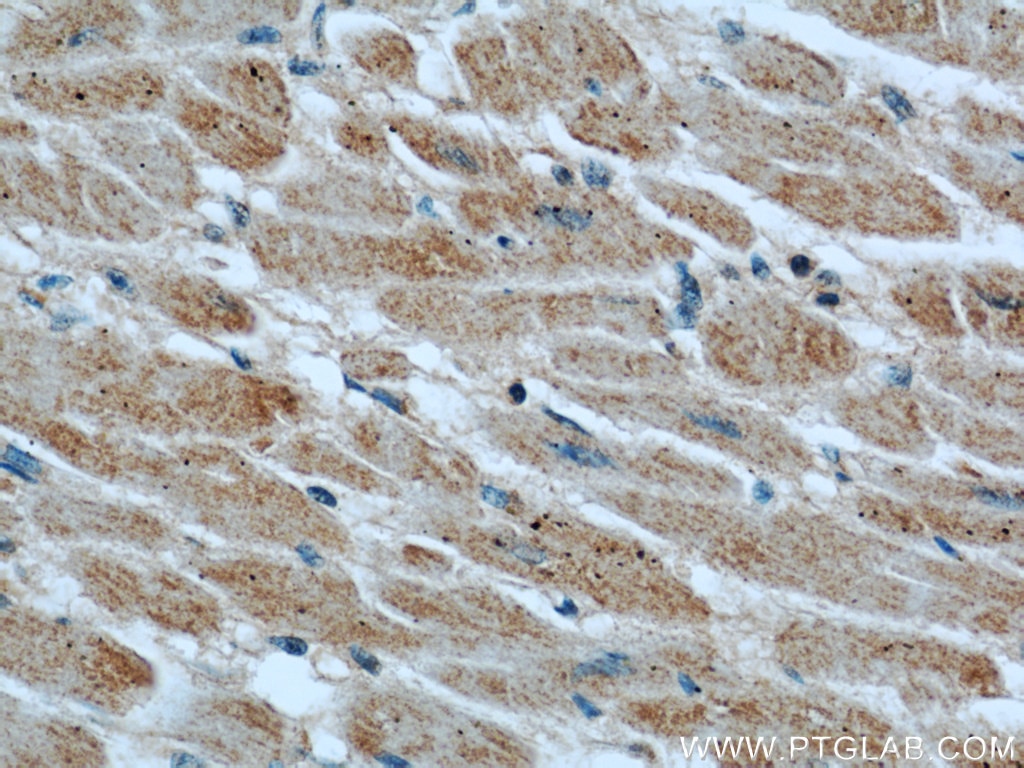Tested Applications
| Positive WB detected in | mouse liver tissue, rat liver tissue |
| Positive IHC detected in | human heart tissue Note: suggested antigen retrieval with TE buffer pH 9.0; (*) Alternatively, antigen retrieval may be performed with citrate buffer pH 6.0 |
Recommended dilution
| Application | Dilution |
|---|---|
| Western Blot (WB) | WB : 1:500-1:2000 |
| Immunohistochemistry (IHC) | IHC : 1:50-1:500 |
| It is recommended that this reagent should be titrated in each testing system to obtain optimal results. | |
| Sample-dependent, Check data in validation data gallery. | |
Published Applications
| KD/KO | See 1 publications below |
| WB | See 27 publications below |
| IF | See 1 publications below |
Product Information
55156-1-AP targets XDH in WB, IHC, IF, ELISA applications and shows reactivity with human, mouse, rat samples.
| Tested Reactivity | human, mouse, rat |
| Cited Reactivity | human, mouse, rat, chicken, zebrafish, bovine |
| Host / Isotype | Rabbit / IgG |
| Class | Polyclonal |
| Type | Antibody |
| Immunogen |
Peptide Predict reactive species |
| Full Name | xanthine dehydrogenase |
| Calculated Molecular Weight | 146 kDa |
| Observed Molecular Weight | 147-150 kDa |
| GenBank Accession Number | NM_000379 |
| Gene Symbol | XDH |
| Gene ID (NCBI) | 7498 |
| RRID | AB_10860905 |
| Conjugate | Unconjugated |
| Form | Liquid |
| Purification Method | Antigen affinity purification |
| UNIPROT ID | P47989 |
| Storage Buffer | PBS with 0.02% sodium azide and 50% glycerol, pH 7.3. |
| Storage Conditions | Store at -20°C. Stable for one year after shipment. Aliquoting is unnecessary for -20oC storage. 20ul sizes contain 0.1% BSA. |
Background Information
XDH, also named as XDHA, XO and XD, belongs to the xanthine dehydrogenase family. It catalyzes the last two steps of purine catabolism in man, formation of the end product uric acid from hypoxanthine and xanthine. The mammalian enzyme is synthesized as a dehydrogenase (XDH), which uses NAD as the electron acceptor, but it can be converted into an oxidase (XO) both in vivo and in vitro.This gene encodes a protein of 150 kDa and the 150 kDa polypeptide can be processed into a fragment of 130 kDa and further to 85 kDa by spontaneous proteolytic cleavage(PMID:9989587). In addition, the full length polypeptide can be also partially processed into a 87 kDa and 59 kDa fragments(PMID:21528298). It also can exsit as a homodimer(PMID:9989587).
Protocols
| Product Specific Protocols | |
|---|---|
| IHC protocol for XDH antibody 55156-1-AP | Download protocol |
| WB protocol for XDH antibody 55156-1-AP | Download protocol |
| Standard Protocols | |
|---|---|
| Click here to view our Standard Protocols |
Publications
| Species | Application | Title |
|---|---|---|
Int J Mol Sci Multiple-Purpose Connectivity Map Analysis Reveals the Benefits of Esculetin to Hyperuricemia and Renal Fibrosis. | ||
Free Radic Biol Med PPARα agonist WY-14,643 enhances ethanol metabolism in mice: role of catalase. | ||
Nutrients Chinese Sumac (Rhus chinensis Mill.) Fruits Prevent Hyperuricemia and Uric Acid Nephropathy in Mice Fed a High-Purine Yeast Diet | ||
Biochem Pharmacol PPARα agonist WY-14,643 induces adipose atrophy and fails to blunt chronic ethanol-induced hepatic fat accumulation in mice lacking adipose FGFR1. | ||
Sci Rep Iron regulatory protein deficiency compromises mitochondrial function in murine embryonic fibroblasts. | ||
Poult Sci Effects of Smilax China L. extracts on Hyperuricemia chicken model via inhibiting xanthine oxidase activity |

